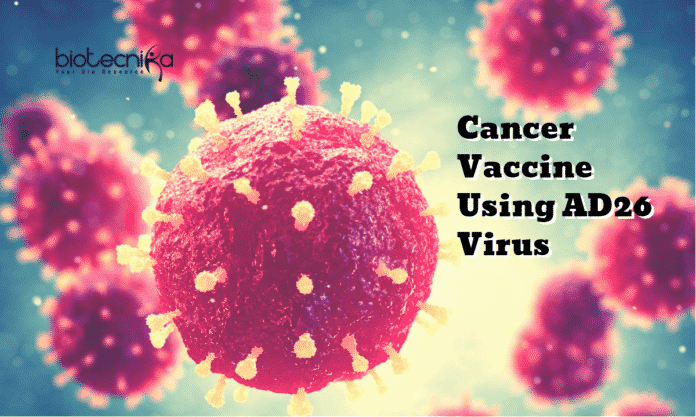Cancer Vaccine Using AD26 Virus
Researchers From Cardiff University’s School of Medicine have decoded how AD26 Virus infects the body. This research could lead to new vaccines and treatments for diseases like cancer.
They have learned how a virus, known as Adenovirus type 26 (AD26), infects human cells. This information about the infection process could be used to make vaccines to stimulate immune systems to fight cancer.
The leader of the research of the Study is Alexander Baker.
More About AD26 Virus- Cancer Vaccine Using AD26 Virus
Adenoviruses are clinically essential agents. They cause respiratory distress, gastroenteritis, and epidemic keratoconjunctivitis. As non-enveloped, double-stranded DNA viruses, they are easily manipulated, making them popular vectors for therapeutic applications, including vaccines. Species D adenovirus type 26 (HAdV-D26) is both a cause of EKC and other diseases and a promising vaccine vector.
According to scientists, the virus could be used as a critical component in vaccines. AD26 virus is currently being used in a vaccine to fight the Ebola epidemic in Africa.
Previously, it was thought the virus used a protein called CD46 to infect cells, but scientists have now found the virus uses a type of sugar on the surface of cells to infect cells.
The research was published in Science Advances, which aims to promote breakthrough developments in science and engineering.
Mr. Baker said that the Study is in a Preliminary Stage. If the researchers can further understand how the virus works as a vaccine or as a disease, it will prove to be Breakthrough research.
As of now, Scientists have established how the virus enters the body and spreads. Mr. Baker added that scientists and clinicians could use this knowledge to target the sugar-binding site to develop drugs to prevent its spread and develop vaccines to fight life-threatening infections.
Decoding AD26 infection process could prove to be important in understanding how the viral vaccine works effectively to protect against life-threatening infections in the future.






























